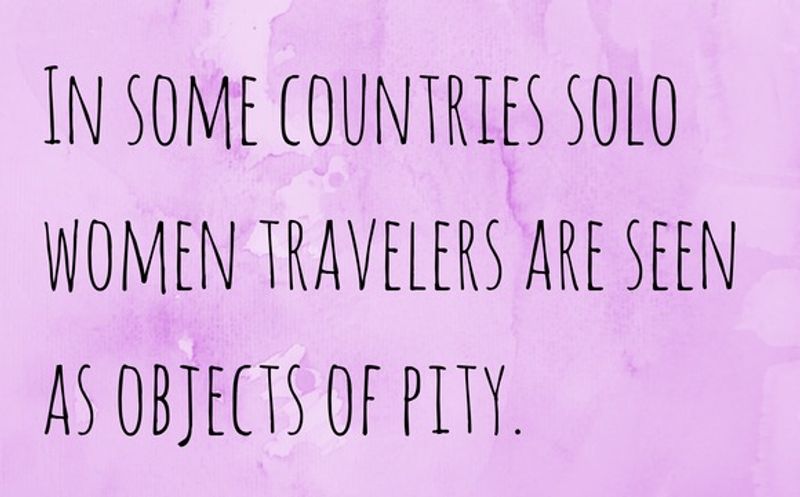I’ll never forget the look of horror on that British face when, upon being introduced to a young man many years ago, I kissed him on both cheeks!
I had been living in Spain, where NOT kissing someone on first meeting was considered rude.
I’ve learned a few cultural etiquette lessons since then, and I’m going to share them with you below – so you can avoid kissing the wrong person in future (or worse – eating with the wrong hand!)

WHAT EXACTLY IS CULTURAL ETIQUETTE, ANYWAY?
Cultural etiquette is what you call the codes of behavior that rule different cultures – in other words, what’s acceptable and what isn’t in a society. Its kin, culture shock, is what travelers experience when faced with irreconcilable cultural differences. (And its slightly more distant cousin, reverse culture shock, is what you experience when you return home after having spent significant time abroad.)
Simply put, good etiquette is basically good manners in the place you’re visiting – the act of aligning yourself with the culture and tradition of a place.
That doesn’t mean we should always abide by foreign social manners; some traditions can be degrading or harmful and should be avoided. But mostly, cultural etiquette is about fitting in, which demonstrates interest in and respect for a foreign culture.
Cultural etiquette may deal with serious issues, such as gender inequality or stereotypes, or with simpler everyday situations, whose rules may leave you perplexed.
For example, what if…
- every person walking into a room shakes hands with every other person (Colombia) or kisses everyone (Spain)
- strangers call you by your first name in business settings, even if they’ve never met you before (South Africa)
- people think you were rude for pointing at someone with your finger (almost everywhere)
- you’re invited to a sauna but first asked to take all your clothes off – in front of men and women you’ve never met before (Finland)
- people stare if you cut your salad with a knife (Switzerland and France)…
See how easy one could offend or be offended?
The most mundane customs and habits can be surprising.
Walk into an elevator in France and everyone says hello… In some countries, admiring something even casually means the owner feels obliged to give it to you… Americans are at ease talking about money – most others aren’t… And the list goes on.

YOU’LL ENCOUNTER MANY TYPES OF ETIQUETTE ON YOUR TRAVELS
If you’re interested in a specific country’s customs, I cannot list them all here so I’ve provided some resources for you at the bottom of this page.
Meantime, here are some of the more visible and common types of differences in international etiquette which you might encounter on your travels.
Tipping etiquette
In some countries, tipping is a foregone conclusion and the absence of a tip on the table signals dissatisfaction.
Tips can range widely. In the USA, tipping is easily 20% of the bill in a restaurant whereas in Australia and several Asian countries, there is no tipping culture. In Japan, tipping is actually insulting, as though you were highlighting someone’s lack of money.
So make sure you find out about tipping etiquette in your destination before you pull out your wallet.
Cell phone etiquette
This can also range widely.
In the USA, the Middle East and Africa, having a loud cell phone conversation in public is perfectly normal. In Japan, you’ll see patrons scurrying out of a restaurant phone in hand at the slightest hint of a vibration. (Yay Japan!)
Before you launch into a vocal Skype call on your mobile, look around you. What are others doing?
Different greetings around the world
This is usually the one that makes people most uncomfortable, especially if kissing is involved. While a kiss or two is a perfectly standard greeting in many parts of southern Europe, some countries – like South Korea – won’t have any contact at all, not even a handshake.
And in many countries (most, in fact, as I found out all those years ago) any kissing on first meeting is a no-no.
Eating etiquette and table manners around the world
One of the joys of travel is the sampling of new foods, and food tourism lies at the heart of many a cultural trip.
Even if we’re accustomed to eating foreign foods, some of the things we are served abroad may come as a surprise, a shock even.
Perhaps you’ve made it through frogs’ legs and garlic snails, but how do you deal with deep-fried snake or crispy grasshoppers? I drew the line at snails the size of tennis balls in Nigeria – yet I love their smaller, garlic-drenched French cousins.
Avoiding food pitfalls can be intimidating, and sometimes no amount of explaining will help. Some people in a meat-loving society may simply not understand your being vegan and may try to insist that meat is good for you. You’ll have to stand your ground, at the risk of being rude.
I insulted a number of government officials in Laos once by refusing to drink alcohol at an inauguration (I don’t drink). Sometimes, you simply cannot be culturally appropriate.
Just be aware that eating styles are different and some things that are accepted or even encouraged in some countries could be shocking to you. For example:
- Eating with your hands: this is perfectly acceptable (or even required) in some countries, whereas it is definitely impolite in others.
- Which hand is which: in certain countries, especially Muslim ones, eating with your left hand is considered extremely rude (and yes, that does make it difficult for those who are left handed).
- Burping during a meal: my mother would be horrified, but in my father’s (Middle Eastern) culture, there would be nothing wrong with it, in fact, the contrary.
These are just a few of the smaller cultural adjustments we have to make when we travel.

CULTURAL DIFFERENCES: COPING WITH CULTURE SHOCK WHEN YOU TRAVEL
Whether you’re heading around the world or simply visiting a new country for the first time, coping with culture shock is something you’ll probably have to contend with.
I can’t say this enough: your best defence is to research the culture before you go. Then go, be yourself, and adapt wherever possible. It’s often a compromise, one we can usually afford to make – at least on the smaller issues.
I do draw a line, though: I won’t compromise on intrinsic issues that deal with discrimination and fundamental rights. If a culture treats women as inferior beings, I won’t play that game. Chances are I might give that country a miss. If I have to visit, I will insist on being treated equally. After all, cultural etiquette works both ways.
So how do you cope in countries where people don’t see the world the way you do?
The first step towards coping – become aware of the status of women
Being a woman in a Western country is relatively straightforward. We tend to be treated more equally and in many cases our gender isn’t really an issue. Where it is, there is usually legal and social redress. I wish I could say it was the same everywhere.
In many (most, actually) parts of the world, women are considered less important than men, however galling this might be. This translates into certain attitudes, often the simplest ones, like ignoring you when you ask a question or giving the answer to a male friend, if you happen to have one along.
In many Latin American countries and around the Mediterranean, you’ll face unwanted male attention – it may be ‘theoretically’ meant as appreciation of your beauty (or simply of your being female) yet for many Western women, this can be quite distasteful or downright scary. Get ready to cope with wolf whistles, catcalls, lewd noises… just understand that however distasteful and unpleasant, in most cases they aren’t threatening. That doesn’t make them acceptable…
Women travelers who can’t or won’t put up with restrictions inherent in a specific country should stay away; there’s no point in railing against customs you can’t combat from within a country. And you won’t change them from within; you’ll draw attention to yourself and possibly end up in trouble. If you want to complain and criticize, wait till you’ve left.
Take your cue from the women around you
What are they wearing? How are they behaving?
Do the same or add your own compatible version and you’ll be smoothing out some of those cultural differences.
One friend noticed a radical change in attitude towards her in South Asia when she swapped her Western clothes for a local salwar kameez. On the other hand, you might be stepping over into cultural appropriation but that is an entirely separate discussion.
Seek out women who have been where you’re going. Try to get first-hand information. If you don’t know anyone familiar with your destination, hit the online travel forums and ask questions. Most good forums have sections on solo travel, women’s travel, or specific destinations. Ask, ask, ask – and you’ll find other travelers are usually generous and share plenty of information online. Some of them may live in the country you’re visiting and can be hugely helpful.
Learn about body language and gestures
We don’t realize how powerful gestures and body language are until we use the wrong one in a new setting.
For example, nodding your head may mean Yes in your culture, but it means No in Greece and Bulgaria. The circle you make with your thumb and index when you mean OK is extremely rude in several countries. So is (depending on the country) crossing your legs, touching someone on the head or showing the sole of your shoes or feet. Make sure you read up on these cultural differences before you go.
In certain male-dominated societies, looking a man in the eye or trying to interact as an equal can get you into trouble.
In Buddhist countries, you shouldn’t touch a monk. On a bus or in a vehicle, try to sit in the row in front or behind him. I was quite taken aback in northern Thailand when I had to ride a pickup truck with a monk, both of us scrunched into the front seat. I assume exceptions are made if there is no alternative.
While many popular destinations are overrun with tourists, some less traveled regions haven’t experienced mass tourism. For these, television might be the only window into Western culture. If you dress or behave like reality TV stars, men may think you also do everything else they see these stars do. Even looking a man in the eye or touching his arm may mean ‘I’ll sleep with you’ in some parts of the world so beware of local customs. It may offend you to abide by these rules but knowing they exist will help you decide wisely.
What you look like matters
Yes, it does. If you’re a person of color visiting a white society which hasn’t seen many black people, you may well be stared at, discriminated against or even insulted. My traveling friends of color have reported the entire gamut of reactions, from excessive friendliness to warm welcomes to dislike, and it’s something to prepare for. As the world becomes more cosmopolitan and an increasing number of people travel, understanding and acceptance begin to override differences. But not always, and not everywhere.
Youth is another trigger, especially if you are perceived to be beautiful. In societies where women aren’t treated with respect, being young-looking and on your own may attract some of the worst behavior, and in countries where people tend to be darker-haired, being blonde – or readheaded for that matter – will also call attention to you. Just be prepared for it.
Err on the conservative side
Showing skin may act like a magnet in certain cultures. Ideally, what we wear shouldn’t matter – but it does. This may not be what you’re used to, but, unfortunately, you’ll often be judged by your clothes.
If you’re visiting a conservative country, keep your shoulders and knees covered and you’ll avoid running afoul of any social constructs (unless you’re in a strict Islamic country and required to wear a headscarf or more).
Check out the country’s style
Not in clothing, mind you, but in character. Cultural differences affect behaviour – what you consider as being direct and open may be interpreted as a direct come-on or totally inappropriate. The same goes for most public affection displays.
When it comes to coping with culture shock, punctuality is one of my pet peeves – and greatest challenges. While some societies tend to see punctuality as an asset, in others the concept is far more flexible. Tomorrow may mean next week, and next week may mean, well, who knows. A good way of avoiding frustration if you’re a punctuality maven is to either expect others to be late, or decide ahead of time not to care. However frustrating, you won’t change a national culture – so you might as well change the only thing you do have control over: your own expectations.
Related to this is the dislike many cultures have of saying No – so people, inherently wishing to please, will say they’ll try (India) or maybe (Japan) or tomorrow (Spain and Mexico). Don’t be misled: in my experience this can mean No. Not now. Not ever.
Another trait that differs among countries is emotional display. Showing anger (most Asian countries) or yelling at people (much of Africa) will get you absolutely nowhere – much the opposite.
None of these things are essential and ignoring them won’t put your life in danger, but it’s always good to be prepared for what’s ahead.

Learn a few words of the language
Many cultural gulfs can be bridged with a few well-placed words.
We are fortunate that English is widely spoken around the world. Widely, but not everywhere. So a major part of coping with culture shock is realizing that sometimes we can’t even manage the simplest things on our own – like going to the post office or buying something in the market. The best way around this is to learn a bit of the language – even a few words will help keep that culture shock at bay. And don’t think your English is everyone’s English: some accents are so different you may wonder if you’re speaking the same language.
Simply be aware
Your best bet is to be informed before you go.
What if drinking a soda in the street makes you appear ‘loose’? You can’t know, unless you’ve read up on cultural etiquette and on the status of women at your destination. Look around you when you arrive, observe your surroundings, and ask questions if there’s anything you don’t understand. People love sharing information about their culture and homelands!
The good news is that as a foreign woman, you’ll probably be forgiven a few lapses in cultural awareness. Laughter will get you out of most scrapes caused by cultural differences, and you’ll learn your hosts’ habits as you go along.
That doesn’t mean you should follow blindly, though. I have worn veils in Algeria and Iran, but I would never condone the wedding of an eight-year-old, as happened in Saudi Arabia, or the beating of women because it’s culturally acceptable. In my view, that is crime, not culture.
TO WHAT EXTENT SHOULD YOU ACCEPT CULTURAL TRADITIONS AROUND THE WORLD?
The big question is what to do about cultural differences: you have choices, but each has benefits and costs.
- You can ignore cultural differences altogether and just be yourself wherever you go. There is a feel-good factor about being true to yourself and behaving with integrity. There is also the knock-on effect of other cultures being exposed to YOU, just as you are. But be aware that your behavior might be insulting to the receiving culture. If it’s polite to burp in the Middle East when a meal is good, you might not appreciate it at your own dinner table. Your Middle Eastern guest is just – you guessed it – being polite. Standards and norms differ. In some countries, “being yourself” could lead to danger, especially if it involves interpersonal relationships between men and women. So think it through before deciding to throw cultural compromise overboard, at the risk of putting yourself in danger or being, at the very least, disrespectful and perceived as rude.
- You can try to understand the differences and meet people part-way. Without trading off too much of yourself, you could accommodate local culture to whatever extent you feel comfortable. For example, I wore a wedding band across Africa: it just made people more comfortable around me (and lessened the harassment factor). As a solo traveler I would otherwise have been kept at much more of a distance. I also wear a headscarf into a mosque, just as I might cover my head in a Catholic church. Your own personal comfort zone will dictate how far you can go without compromising yourself.
- You can adopt the local culture as your own, and ‘go native’. Most travelers don’t feel comfortable with this but if you’re going to live long-term in a different culture, you might consider whether it’s worth adapting for the sake of belonging or fitting in. Again, this is a highly personal choice and there is no right or wrong.
GLOBAL ETIQUETTE IS ALSO ABOUT YOU – AND HOW THE WORLD SEES YOU
Culture is a two-way street and is as much about you as about the society you’re entering.
Consider these questions before you go…
- What are your own values and assumptions?
- What are you comfortable with?
- How do you feel men should treat you?
- What are your limits when it comes to personal space?
- Do you tend to make eye contact when you talk to people?
- Are you punctual?
- Do you use your hands a lot when you talk?
- Do you always say what you mean?
How you answer these and similar questions about yourself will dictate how you react to situations around you – and might even change your choice of destination, or your own assumptions.
Etiquette can be tricky and misreading the cues can ruin a trip or insult the very people you have traveled so far to meet.

Take solo travel. Not all cultures think it’s normal for women to travel alone, so we have learned to adjust.
As I traveled across Africa by myself the most common comment I heard was, “I’m sorry.”
In other societies, women on their own may be considered fair game: if you’re traveling alone, you must be ‘easy’. Otherwise you would have a husband and he certainly wouldn’t ‘allow’ you to travel solo.
As I mentioned earlier, some people, especially in remote societies, only know Western women from television; for all you know, they may think Desperate Housewives is everyday life in the USA!
Galling as it may be to our independent and egalitarian Western souls, understanding cultural differences can help unravel these travel challenges and bring down your heart rate wherever people are consistently late, whistle as you walk by, or refuse to look you in the eye.
You may not accept everything, but at least you’ll understand why things happen.
NOT QUITE ETIQUETTE – BUT CULTURE SHOCK NONETHELESS
Discrimination
In many countries discrimination, while it does exist, is less condoned. Unfortunately this isn’t the case everywhere. Here are a few examples – there are many more. Being African in some parts of Eastern Europe may require some fortitude. In Japan you might not get a lease if you’re a foreigner. In China you might have to pay more. Being a Muslim or Sikh in some countries means you’ll attract mistrust or worse. Being gay can land you in jail or even kill you. Discrimination remains very real and there’s every chance that wherever you’re from and whoever you are, you’ll experience it at some point – although, I hope, less and less. We all have stereotypes about people and cultures; the trick is to avoid them as much as possible and this is where your skills in coping with culture shock may be most tested.
Hygiene
Cleanliness that seems normal and expected at home may be out of reach abroad. You may take things like clean drinking water for granted, but millions have no access to these luxuries. A shower might turn out to be a ladle dipped into a barrel of rainwater, and you might have to squat to go to the bathroom. Cleanliness standards in poor areas will be even worse given the lack of clean water. On the other hand, some societies pride themselves on being so pristine people wouldn’t dream of stepping outside without first taking a shower. No matter how hot and muggy, they always look as though they’ve walked out of a magazine page.
Pollution
Many countries have started cutting back on polluting emissions and city traffic and have breathable air as a result. But if you’re traveling to the developing world you may be in for a surprise in many of the megacities. Standing on a polluted street corner on Bangkok at rush hour requires a face mask; when I decided to live there many years ago it took me two weeks to simply learn how to breathe in the city. Beijing and New Delhi consistently suffer from air pollution. If you have breathing problems, check with your doctor first and choose your season and destination wisely.
Coping with culture shock is often more about the little things than the big ones. The lack of toilet paper. Phones that work differently. Strange smells. Unusual wildlife. How cheap – or expensive – things are. Sizes that are too small. More people packed into smaller spaces. Noise levels. Tap water (or taps that work). And so on.
Many of these differences are the reason we travel.
Imagine your surprise at discovering new foods. The kindness of strangers. Amazing landscapes. Unusual art and compelling cultures. New cloths. Antiquated but colorful transportation. Unfamiliar philosophies and beliefs. Festivals and music. The joy of communicating with someone from another culture. Unexpected and unscripted adventures. Freedom. Open-mindedness. Sunrises and sunsets. Washing in a tropical rainstorm. Fresh tropical fish in the sea.
Culture shock will eventually end and you’ll actually seek out the differences. After all, we don’t travel to experience what we already have at home. If we did, we could save a lot of money by simply staying put!
Nor can we bandy about our Western assumptions as though we are consistently right and others wrong. We are different, with some things more acceptable than others, depending on who we are and where we come from.
All we need is a bit of cultural savvy, curiosity and openness − and a reminder that the rules, however important, don’t make the person.
CULTURAL ETIQUETTE RESOURCES
- These country etiquette guides are mostly for business travelers but contain plenty of useful information for the rest of us.
- e-Diplomat, also work-oriented, has fewer countries but is more wide ranging, with a specific section for women.
- Tipping etiquette around the world
AROUND THE WORLD IN 42 HAND GESTURES
Infographic from Work the World via Creative Commons 4.0
— Originally published on 31 July 2011
SHOP THIS POST ON AMAZON
PIN THESE PICTURES AND SAVE FOR LATER!








